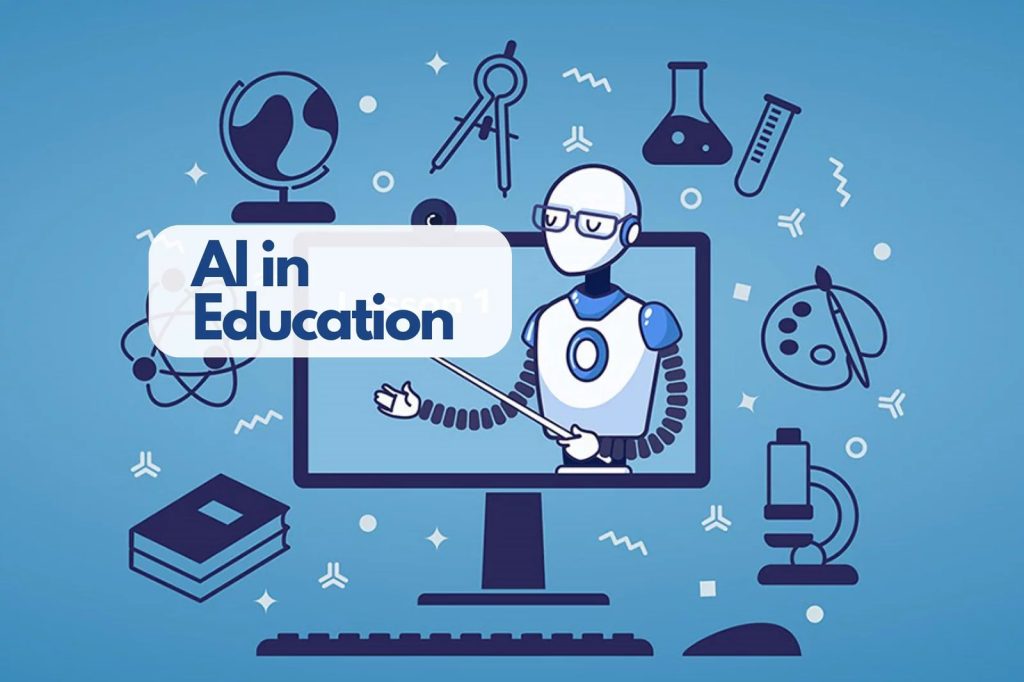Artificial Intelligence (AI) is not just a technological revolution; it’s a paradigm shift that’s reshaping the way we live, work, and interact with the world. In this exploration of the future of artificial intelligence, we delve into the exciting developments, practical applications, and the profound impact AI is set to have on our lives.

What is AI?
Before delving into the future of artificial intelligence, let’s first grasp the basics.
Artificial intelligence or AI, is essentially the capability of machines or computer-controlled robots to carry out tasks linked to intelligence. In simpler terms, AI is a branch of computer science dedicated to creating smart machines that can replicate human behavior.
So, at its core, AI seeks to develop machines with the ability to think and act intelligently, mirroring certain aspects of human cognition and behavior.
Based on capabilities, AI can be divided into three types that are:
- Narrow AI: It is capable of completing dedicated tasks with intelligence. The current stage of AI is narrow AI.
- General AI: Artificial General Intelligence or AGI defines the machines that can show human intelligence.
- Super AI: Super AI refers to self-aware AI with cognitive abilities that surpass that of humans. It is a level where machines can do any task that a human can do with cognitive properties.
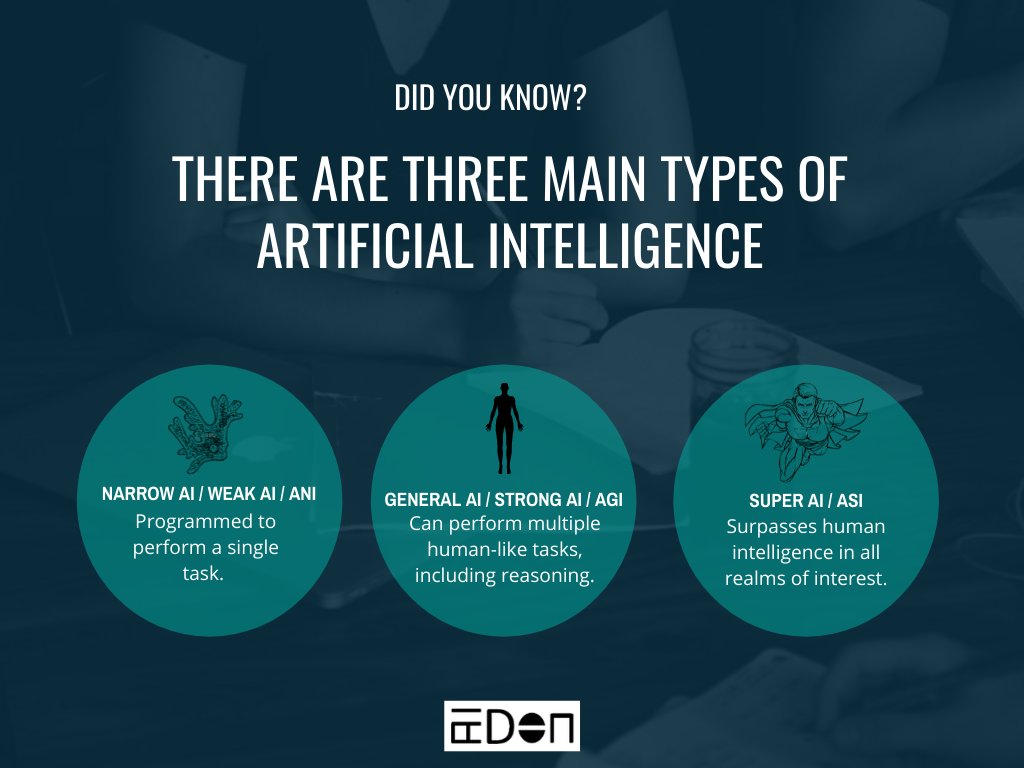
At the current stage, AI is known as Narrow AI or Weak AI, which can only perform dedicated tasks. For example, self-driving cars, speech recognition, chatbots, algorithmic image generators, etc.
The Current Landscape
Before we leap into the future of artificial intelligence, let’s take a quick snapshot of where we stand today. AI, once confined to science fiction, is now a tangible reality. From virtual assistants to recommendation algorithms, AI has seamlessly integrated into our daily lives, streamlining processes and enhancing efficiency.
We are using AI technology in our daily lives either unknowingly or knowingly, and somewhere it has become a part of our lives. Ranging from Alexa/Siri to Chatbots, everyone is carrying AI in their daily routine.

The development and evolution of this technology are happening at a rapid pace. However, it was not as smooth and easy as it seemed to us. It has taken several years and lots of hard work & contributions of various people to take AI to this stage.
The Evolutionary Leap
Anticipating Intelligent Evolution
As we gaze into the crystal ball of technology, it’s evident that the future of artificial intelligence involves a monumental leap.
The heart of this transformation lies in the metamorphosis of Machine Learning algorithms. No longer confined to the role of data crunchers, these algorithms are undergoing a profound renaissance, emerging as intelligent systems with the ability to learn, adapt, and autonomously make decisions. It’s pretty much the same as witnessing the apprentice become the master.
The future promises not just a leap in AI capabilities but a revolution, where our machines become not just tools but dynamic partners in the collective journey forward.
Deep Learning: The Neural Frontier
One of the driving forces behind this evolution is deep learning.
Mimicking the human brain’s neural networks, deep learning algorithms are unlocking new realms of possibilities. From image recognition to natural language processing, the depth of understanding is reaching unprecedented levels.

This technological marvel signifies more than just progress; it’s a testament to the boundless potential of deep learning, pushing the boundaries of what AI can achieve in our everyday lives.
The Near Future of Artificial Intelligence
The future of AI promises significant positive changes, including improved access to information, education, healthcare, and transportation. It will also require more technical expertise and generate solution-oriented individuals. However, ethical concerns about the impact of AI on society cannot be ignored, including biased and discriminated views and privacy and data protection issues. The accountability of wrong or error-based outputs and subsequent human actions also raises concerns.
In the near future, better-developed generative AI, such as DALLE2 and enhanced versions of GPT, will be released. AI will become more common in companies, serving multiple departments and customer interactions. The healthcare industry will also see expected growth. The increasing pace of AI usage is more likely to bring up authorities and regulations for accountability and raise voices for ethical concerns. Strategies will remove biasedness and incorporate transparency in its usage for data processing.
AI in the Long-Term
Artificial General Intelligence (AGI): The Next Frontier
Now, let’s talk about the big leagues – AGI.
AGI is the rockstar of AI, the one that can learn, think, and act like humans. Though we’re not there yet, developers are working tirelessly to turn this sci-fi dream into reality.
The quest for AGI is not new. Scientists and researchers have been working towards this goal for decades. Early AI models were limited, but recent advancements in deep learning, neural networks, and computational power have propelled us closer to achieving AGI.
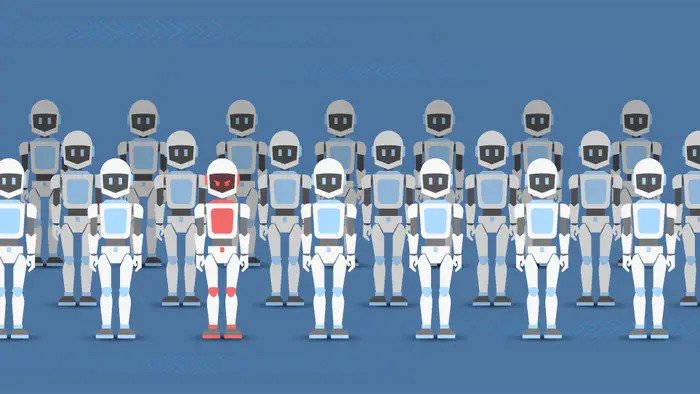
The most important components of AGI have already been achieved by the current generation of advanced AI large language models such as ChatGPT, Bard, LLaMA and Claude.
For companies like OpenAI and DeepMind, a lab that’s owned by Google’s parent company, the plan is to push this technology as far as it can go. They hope to eventually build AGI.
“My goal is to build broadly beneficial A.G.I. I also understand this sounds ridiculous,” Sam Altman, OpenAI’s former chief executive, was quoted on New York Times.
Real-World Applications
Autonomous Everything
From self-driving cars to drones delivering packages, autonomy is the keyword. The future will witness a surge in autonomous systems, driven by AI’s ability to navigate complex environments, make split-second decisions, and continuously learn from the ever-changing world around them.
Healthcare Revolutionized
In the healthcare sector, AI is not just a tool; it’s a lifeline. Diagnosis accuracy, personalized treatment plans, and drug discovery are all benefitting from the analytical prowess of AI. The future holds a healthcare landscape where AI collaborates with medical professionals to deliver precise, timely, and personalized care.
“Artificial intelligence is one of the most promising fields in technology and has the potential to help solve some of the world’s most pressing challenges, including healthcare.” – Mark Zuckerberg, CEO of Meta.
New Breathe to Education
AI is revolutionizing education by automating mundane tasks and elevating the learning experience.
In the future, education will be more personalized, interactive, and enjoyable, thanks to AI’s ability to tailor lessons to individual needs. This shift from rote memorization to practical application will make knowledge readily accessible, fostering a deeper understanding of concepts.
Safer and more engaging lab experiments will become the norm. As smart classrooms evolve into smart buildings, the entire school environment will benefit from a positive and technologically enriched atmosphere.
AI is not just streamlining education; it’s transforming it into a dynamic and student-centered experience.
“Education is clearly the foundation for success, and our future depends on innovation and creativity that will come from our students.”- Mark Zuckerberg, CEO of Meta
AI Revolutionizing Transportation
While self-driving cars are currently under driver supervision, ongoing advancements in AI are paving the way for fully autonomous vehicles. AI is not only enhancing navigation systems but also optimizing traffic flow, promising a future of more efficient, safer, and convenient transportation. Major players like Tesla and Waymo are at the forefront of this technological shift.
Looking ahead, AI is set to revolutionize the industry, offering solutions to reduce congestion, emissions, and accidents. The ongoing developments in autonomous vehicles and smart traffic management systems indicate exciting possibilities, reshaping the way we move and travel.
“We will eventually see autonomy and AI be the only option. It will be so much safer than human drivers.” – Elon Musk, CEO of Tesla, SpaceX & Twitter
Customer Services Innovated
The incorporation of AI, including chatbots, virtual assistants, and natural language processing, ensures personalized and efficient customer interactions. AI-powered chatbots, available 24/7, not only reduce response times but also elevate customer satisfaction.
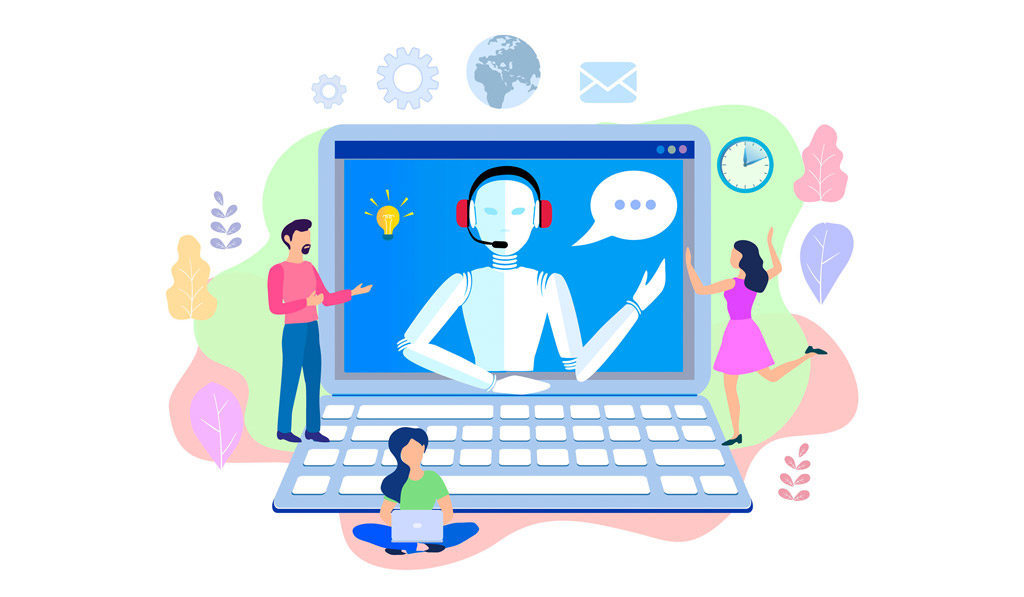
The future of AI in customer service holds the promise of even greater efficiency and satisfaction. Anticipate transformative developments, from voice-activated assistants to predictive analytics, as AI continues to redefine how we engage with customers. The ability of AI to automate routine tasks and deliver personalized recommendations is set to revolutionize the customer service experience.
“AI can help to improve customer service by automating routine tasks and providing personalized recommendations.” – Satya Nadella, CEO of Microsoft
AI in Marketing
The marketing sector will see remarkable revolutions with continuous breakthroughs in AI. Using predictive models and customer behavior analysis, it will enhance targeted content delivery. Automated, hyper-personalized marketing based on individual preferences is on the horizon. Future advancements in voice search optimization, augmented reality, fraud detection, and chatbots promise seamless, human-free customer services. Brace for a marketing landscape where AI transforms strategies and customer interactions.
“As AI continues to evolve, we can expect to see more intelligent automation in marketing, making it easier and faster to reach our audience. The possibilities are endless, and the future of marketing looks very exciting.” – Neil Patel, Co-founder of NP Digital
AI in Human Resource Management
AI is automating HR tasks like candidate screening and onboarding, reducing the workload for professionals. This promises more efficient processes in hiring and employee management. As AI evolves, expect innovations that transform HR management, enhancing employee engagement and fostering new opportunities for growth.
“Cognitive computing is going to be the next big thing in human resource management. It is going to transform how we hire, train, and retain employees.” – Ginni Rometty, Former CEO of IBM.
AI in Banking
AI plays a pivotal role by ensuring fraud detection, automating customer service, and enhancing risk management. Through machine learning algorithms, it analyzes extensive data, offering valuable insights into customer behavior, credit risk, and investment opportunities. The future holds the promise of even more efficient and accurate financial services, simplifying access to financial products and services. Anticipate exciting developments in AI, from chatbots to robo-advisors, poised to reshape how we interact with banks and financial institutions.
“AI and machine learning will transform every aspect of banking over the next decade.” – Jamie Dimon, CEO of JPMorgan Chase.
Ethical Considerations
While the future of AI promises a utopia of technological wonders, ethical considerations cast a long shadow. Striking the right balance between innovation and responsibility is crucial. Questions of bias in algorithms, job displacement, and the ethical use of AI demand our attention. It’s imperative to sculpt a future where AI serves humanity without compromising our values.
The Future Workforce
Collaboration, Not Replacement
Contrary to dystopian fears, AI is not here to replace the workforce but to collaborate with it. The future workplace will witness a synergy between human intelligence and AI capabilities, where repetitive tasks are automated, allowing humans to focus on creativity, problem-solving, and innovation.
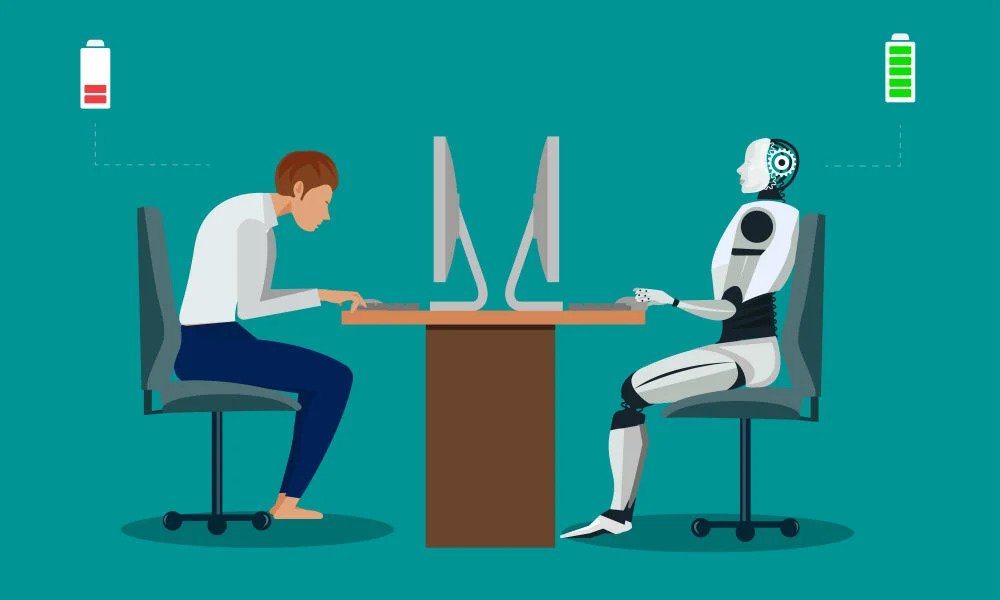
Reskilling for Tomorrow
Preparing for the future of artificial intelligence requires a proactive approach to education and skills development.
The workforce of tomorrow will need to embrace continuous learning, adaptability, and a keen understanding of how to leverage AI as a tool for augmentation.
AI and Privacy Risks
In the age of AI, the shadow of privacy risks looms large. As our reliance on smart technology grows, so does the concern about the security of our personal data. From virtual assistants to smart homes, the convenience comes at a price—our privacy. The constant collection and analysis of our information open doors to potential misuse and surveillance. Whether it’s predictive algorithms or facial recognition, the very innovations meant to ease our lives pose risks of unauthorized access and data exploitation.
Striking a balance between the benefits of AI and safeguarding our private lives is an ongoing challenge in this digital landscape.
Conclusion
As we navigate the uncharted waters of the future, one thing is certain: the future of artificial intelligence is both thrilling and challenging. The pace of innovation is accelerating, and the transformative power of AI is reshaping our world. Embracing this future requires a balance between innovation and ethical considerations, ensuring that AI becomes a force for good in the hands of responsible stewards.
Embark on this journey with optimism, curiosity, and a commitment to shaping an AI-powered future that enhances the human experience. The age of artificial intelligence is upon us – let’s unlock its full potential together.



